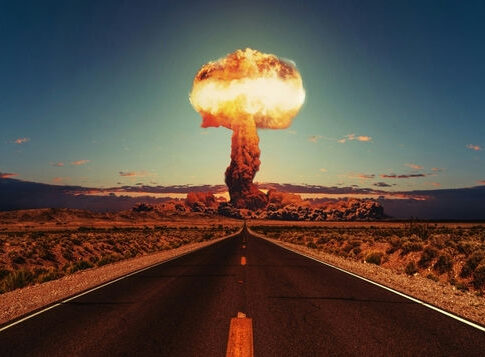In a world teetering on the edge, Russia’s bold nuclear threats leave global leaders scrambling to avoid catastrophe.
Russia’s Nuclear Gambit
In a troubling turn of events, the Kremlin has intensified its nuclear rhetoric, sending shockwaves through the international community. On July 22, 2025, Kremlin spokesperson Dmitry Peskov announced that there was “clearly no basis” for a Nuclear Five summit, underscoring escalating tensions. This announcement comes on the heels of large-scale Russian missile and drone strikes against Ukraine, showcasing a hardening stance from Moscow. Peskov’s remarks reflect Russia’s growing isolation and unwillingness to engage in diplomatic dialogues that could ease nuclear tensions.
Russia’s actions are not just saber-rattling; they are a calculated move to deter Western involvement in Ukraine. Russian President Vladimir Putin and his administration have repeatedly employed nuclear threats to maintain strategic parity and secure their sphere of influence. With over 400 drones used in a single night on July 20–21, the scale of assaults is unprecedented, provoking further pledges of military aid from Western allies like the U.K. This escalation underscores the volatile nature of the current global security environment.
NATO’s Balancing Act
As Russia ramps up its aggressive tactics, NATO and its allies are left with no choice but to respond. The U.S., U.K., and EU member states have been unwavering in their support for Ukraine, providing both military and financial assistance. This commitment is driven by a need to deter Russian aggression and prevent any potential nuclear escalation. However, the balance is delicate. NATO’s strategic ambiguity aims to maintain deterrence while avoiding actions that could provoke a full-scale nuclear confrontation.
BREAKING 🇺🇲🇬🇧🇷🇺🔥 #Russia speeding the production of S-500 Anti-nuclear missile system amid U.S. deployed Tactical NUCLEAR weapons in UK for the first time. pic.twitter.com/c3ID23Imcu
— RKM (@rkmtimes) July 21, 2025
Despite this, the fear of miscalculation looms large. Russia’s nuclear rhetoric, aimed at exploiting divisions within NATO, only serves to heighten anxiety across Europe. This anxiety leads to further militarization and readiness among NATO members, creating a feedback loop of tension and rearmament. The result is an ever-increasing risk of miscalculation or accidental escalation between nuclear powers, a scenario no one wants to see realized.
The Humanitarian Toll
Amidst the geopolitical chess game, it is the civilians who bear the brunt of these tensions. Ukrainian infrastructure has been devastated by ongoing Russian strikes, plunging the nation into a humanitarian crisis. The social fabric of Ukraine is under immense strain as its people endure the constant threat of nuclear escalation. European populations, too, are experiencing heightened security risks and economic costs due to the regional militarization efforts.
Kremlin slams ‘militarization’ over reports of US nukes in UK
Peskov says Russia is monitoring reported US nukes in the UK and sees no grounds for a Nuclear Five summit amid Western militarization
Find all news at: https://t.co/Hi9Qowqyms | RT
— Index Welt (@indexwelt) July 22, 2025
The global community watches with bated breath as the risk of nuclear conflict looms ominously. The erosion of global nuclear arms control architecture and the potential for a new arms race are real and present dangers. As dialogue between major powers breaks down, the destabilization of international security norms becomes more likely, increasing the risk of nuclear proliferation.
Sources:
Wikipedia: Nuclear risk during the Russian invasion of Ukraine
Institute for the Study of War: Russian Offensive Campaign Assessment – July 21, 2025
Institute for the Study of War: Russian Offensive Campaign Assessment – July 16, 2025
United Nations: Statements on nuclear safety and Russian strikes


